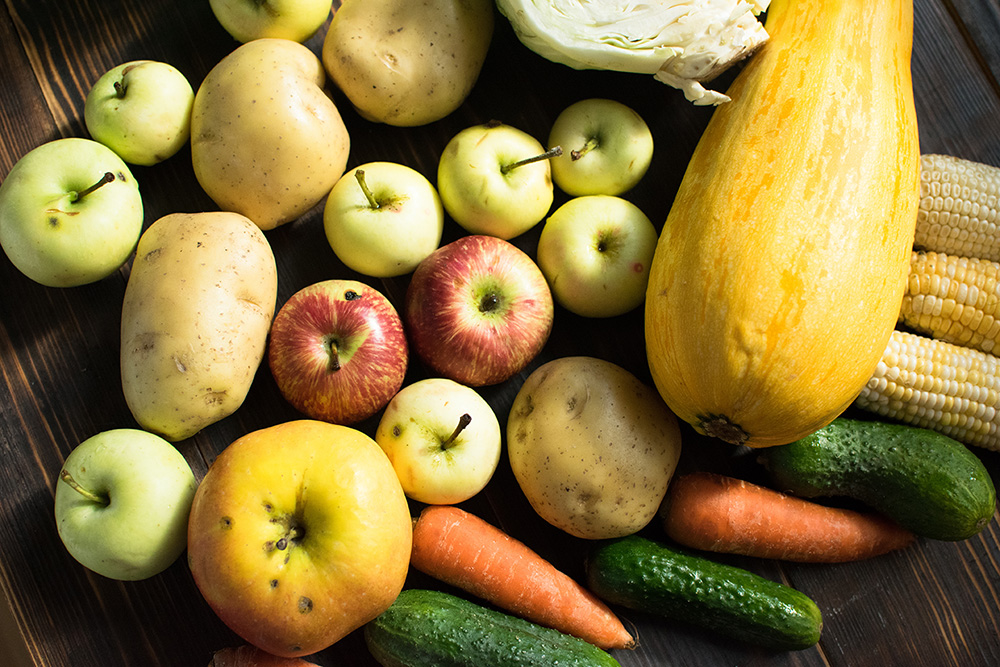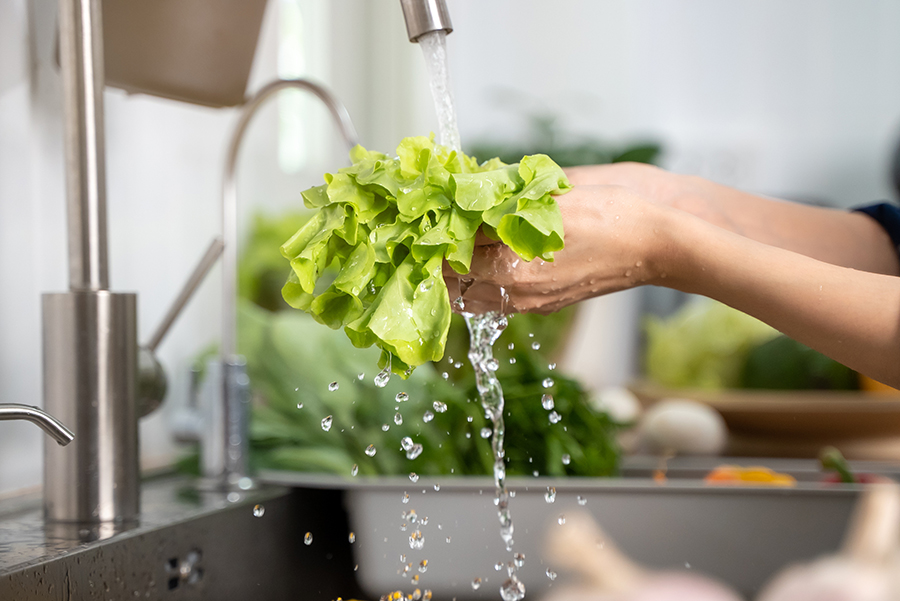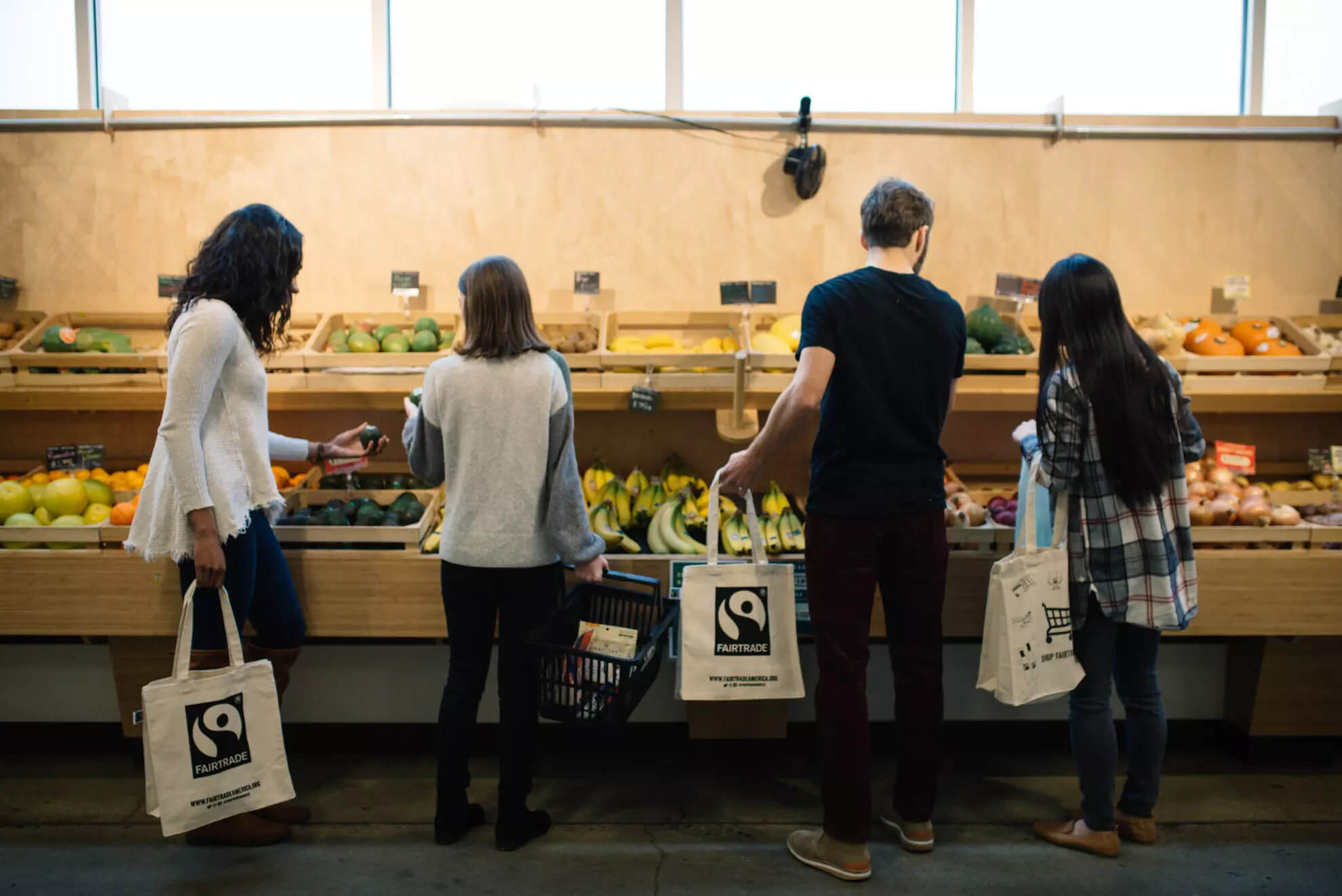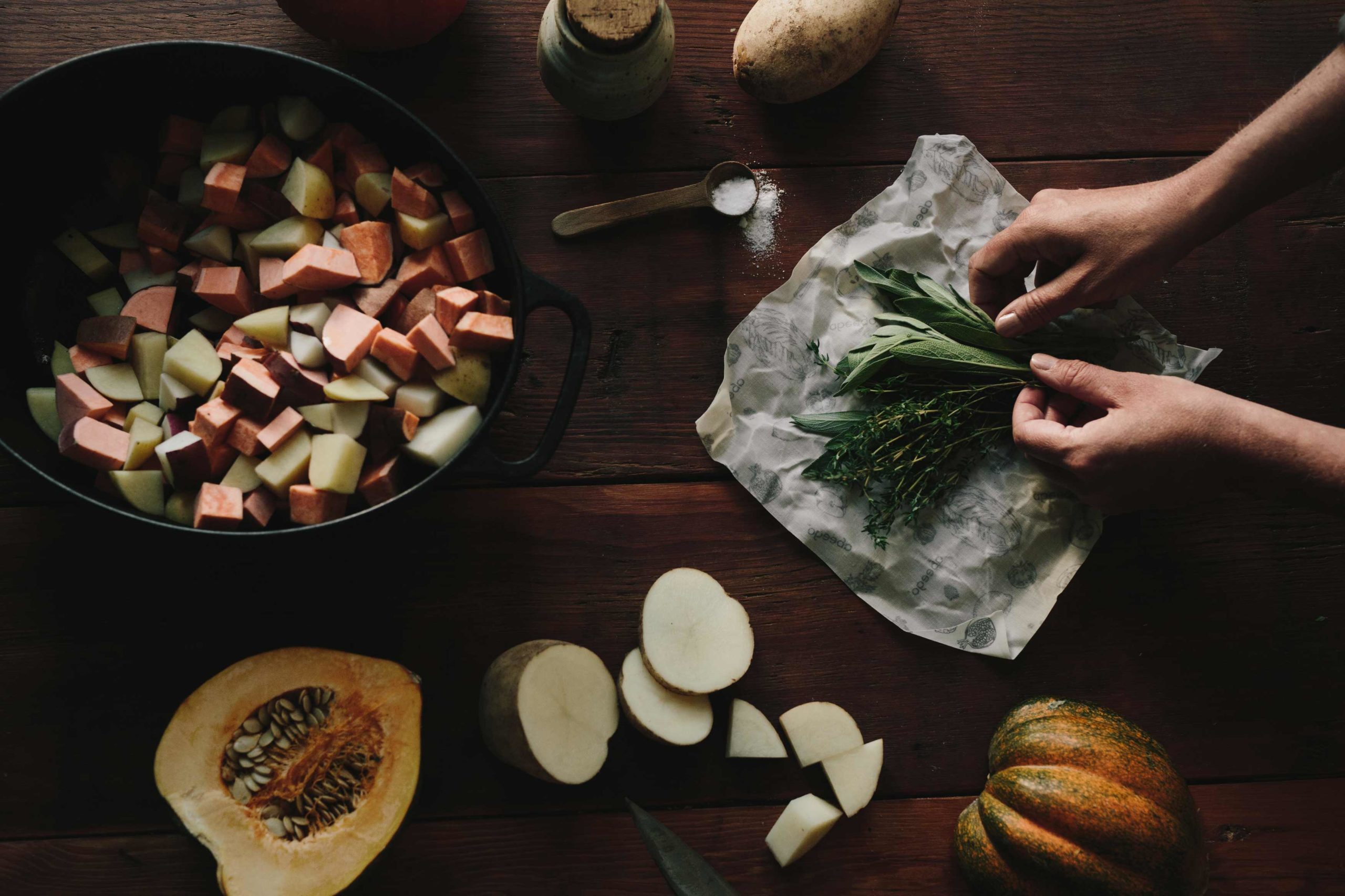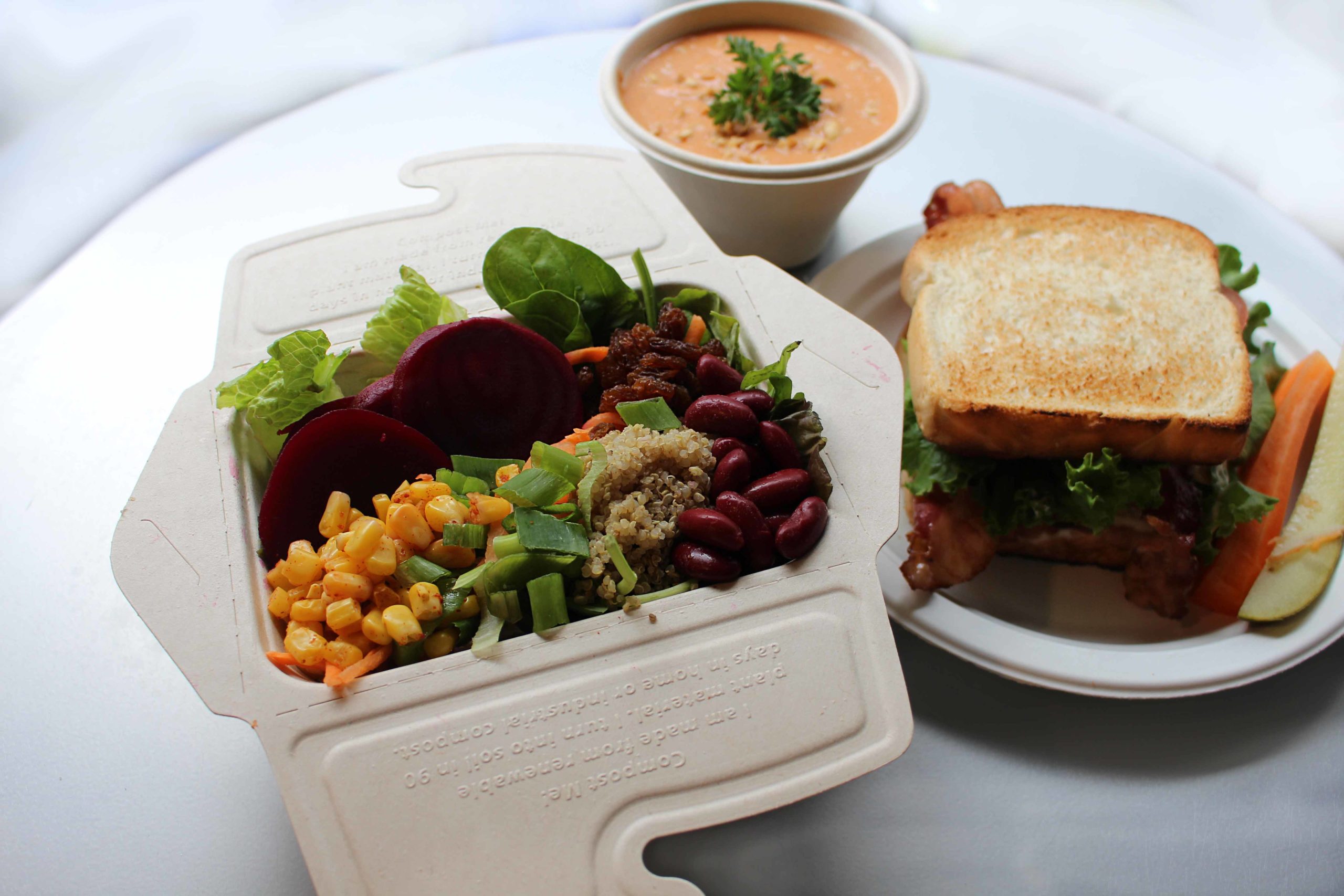1. We have bees on our roof!
We are welcoming big colonies – two hives of 50,000 honeybees each – to 53 of our rooftops. It’s a move to underscore the importance of preserving nature in urban environments, to celebrate local agriculture, and to ignite conversations within our communities about the importance of bees. After all, bees are responsible for pollinating many of our favourite foods – like your delicious morning coffee – so, it was a natural fit for us to make a home for them.
We’re committed to bringing nature into cities across the globe and making urban agriculture a normal part of city life
2. We’ve partnered with Alvéole
Alvéole is a Montreal-based start up on a mission to make cities a better place for humans and pollinators. Alvéole is bringing hands-on educational beehives to schools, office buildings, and businesses around the world. Since its start in 2013, Alvéole has put more than 100,000 people directly in touch with bees through on-site workshops and info sessions that connect the community to the new beehives. “We’re committed to bringing nature into cities across the globe and making urban agriculture a normal part of city life” says President and Co-Founder of Alvéole Alex McLean. “We take baby steps in educating people about the importance of bees, but the level of impact it can have is so inspiring.”
3. The importance of Urban Beekeeping is ever present and increasing.
While the trend of urban beekeeping is “swarming” cities more and more every year, it’s not a new practice. In fact, bees have been officially welcomed in urban environments for centuries – in 1856, a beekeeping school opened in Paris’s Luxembourg Gardens. In 1982, hives were installed at the Opéra de Paris, and since then, many urban landmarks have followed suit, including Canada’s own opera house, the Four Seasons Centre for Performing Arts.
4. Honeybees can be docile
Would you believe that rather than protective suits, Alvéole apiarists often wear shorts and a tee shirt when moving a hive of 50,000 bees to their new home? In Alex McLean’s experience, “the bees aren’t really aggressive at all.” In fact, Italian honeybees – which are imported into Canada – are often chosen for urban beekeeping missions due to their docile nature and mild temperament. Such bees are focused on sourcing nectar, pollen, resin, or water for their colony.
5. Honeybees can thrive in urban environments
You might think that bees belong in the country, but they can actually thrive in cities. Cities can be a pollinator’s paradise, as they may provide key conditions that honeybees need. Honeybees require ample water sources as might be found in a city (one hive needs more than 25 litres per year!). A milder climate would mean less work for honeybees to stay warm in winter, and cities can provide an abundance of pesticide-free flowers to snack on (thank you, gardeners!).
6. Coming soon to a grocery rooftop near you.
Sobeys currently has Alvéole-managed beehives on the rooftops of 50 Sobeys and Safeway stores throughout Alberta, British Columbia and Ontario, and over the next two years, Sobeys plans to bring hives to 160 more Sobeys, Safeway, and Thrifty Foods locations across Vancouver, Calgary, Edmonton, Ottawa, and the Greater Toronto Area.
7. It’s not all about the honey (though the honey is a major perk)
Yes, our rooftop beehives will produce some honey, but there won’t be much! 100,000 honeybees sounds like a huge colony, but honeybees work hard for every ounce. To produce just two pounds of honey, a bee must fly the equivalent of four times the earth’s circumference and visit up to 4,500,000 flowers. In its entire lifetime, one honeybee will produce only 1/8th of a teaspoon of honey.
8. The Alvéole partnership is aimed at helping the bees
We want to spread the word: Bees are important. Bee populations are in decline. We need to save the bees! Here are the basics: The humble bumblebees pollinates more than 130 varieties of fruits and vegetables around the world, which amounts to one-third of everything we put on our plates. Some of our favourite foods – almonds, apples, cranberries, lentils, and avocados to name a few – rely on pollinators like bees to thrive. Our agriculture depends on them. In fact, in Canada alone, it’s estimated that bees are responsible for pollinating crop harvests valued at $4 to $5.5 billion. But bee populations are in decline, putting our crops and food sources at risk.
9. We need to save the bees
Shrinking pollinator populations put our crops and food sources at risk. Two of the biggest culprits behind the decline in bee populations are climate change and industrial agriculture – namely monoculture (meaning big crops that limit bees’ access to food) and pesticides (which can be poisonous to bees). Shifting to agricultural practices like crop rotation, urban agriculture, and limiting pesticide use can help bee’s survival. Combating climate change and taking action to limit it in the long term is also essential. By partnering with Alvéole, we hope to raise awareness about these issues and inspire more people to welcome bees.
10. How you can help at home
If you’re interested in showing bees some hospitality at your home, you can consider planting a pollinator garden with bloomers like rugosa, bee balm, melilot, borage, lavender, rosemary, and thyme, and providing a water source by setting stones in clean, shallow water, such as a bird bath. Keep an eye out for our roof top harvested honey on shelves at select Sobeys and Safeway stores (quantities are limited).

